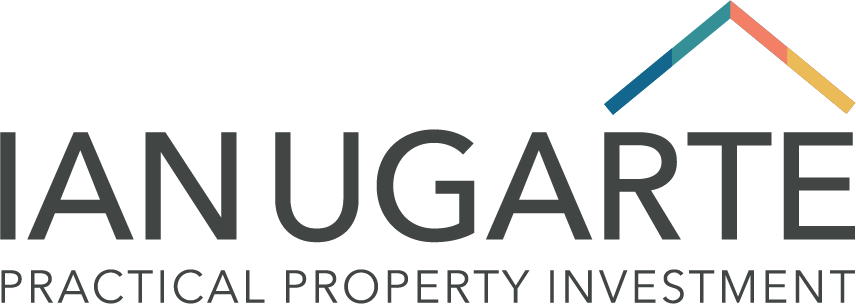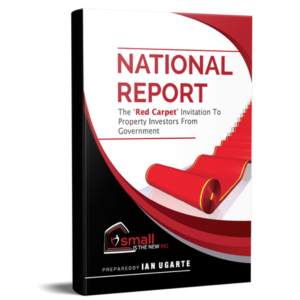Australian consumers are developing a love affair with ‘buy now, pay later’ arrangements, but few realise it could stop banks from approving their home loans in the future. Listen to my chat with 6PR Mornings’ Liam Bartlett about why home buyers and upgraders need to steer clear of Afterpay and Zip.
Homebuyers warned of dangers of Afterpay
Hosted with Liam Bartless, 6PR, June 10th, 2021
WANT MORE INFORMATION? Learn how you can convert your investment property or home into affordable micro-apartments and earn up to 2-3 X typical residential rents by joining my FREE Live Webinar HERE.
Liam Bartlett (00:00):
21 minutes to 10. There’s some interesting figures, shopping figures out yesterday. Now it’s on the back end of a research paper by PayPal Australia. So take this in context because obviously it’s a very thinly veiled attempt to gain publicity. But that’s okay, I’ll go with it because they did research a fair few people in this and that’s their annual end of financial year sales trend report.
Now, the upshot was PayPal found that West Aussies are the nation’s biggest impulse shoppers. That’s the interesting part. Compared to the rest of the country, we are the best. Not necessarily something we want to win, but according to them West Australian spend an average of $173. And this is just over the last three months on things that they did not plan to buy, but they bought them anyway just because they were on sale.
Now, nationally it found one in five Ozzie Millennials self-confessed sales shopping addicts. That’s more than double the national average, and one in five Ozzie Millennials say they suffer from sales related fear of missing out. They don’t buy when if they don’t buy… Sorry, when things are on sale, they feel like they’re losing money.
Now, I mentioned those figures on impulse buying because housing affordability expert says he’s alarmed with the Millennial’s love affair with the buy now pay later arrangements. Things like Zip and Afterpay. And it’s warning that it could stop banks from approving their home loans in the future, which is a very interesting connection. Ian Ugarte is the affordable housing specialist and co-founder of Small Is The New Big. Ian good morning.
Ian Ugarte (01:52):
Hi Liam, I’m great to be with you. And then hello to all the listeners today.
Liam Bartlett (01:56):
Ian look, from those figures from PayPal. I mean, they definitely using Zip an Afterpay like there’s no tomorrow. Impulse buying is going ballistic. What’s the problem with it?
Ian Ugarte (02:07):
Well, I think hard lockdowns during COVID and especially over here in WI has made a huge difference to people sitting around and wanting instant gratification. And so when you want instant gratification, what do you do? You go and find some way to be able to pay for something you can’t afford. And this is where things like Afterpay come in, and Afterpay has been growing at 20,000 customers per day onto their platform. And by the end of 2020, they had 9.9 million users on there being able to get in and pay for something today for the money that they don’t have.
Liam Bartlett (02:45):
20,000 customers a day. Wow.
Ian Ugarte (02:45):
Yeah, absolutely. And this is only one of the many. And now you’ve got Klarna and Openpay, and Payright, And Latitude, and Laybuy and Zip. There’s a huge place coming in the market. Up to 30,000 is the approval… You can get up to $30,000 approved without needing to go through any checks because it’s not a regulated industry. And so when you’ve got an unregulated industry giving money to people short term to be able to pay back the default on that is on the regulated industry with… Especially with the banking Royal Commission that you’ve now got banks looking at people saying, “What’s your spending habits and are you a safe risk for us?” Because if you’ve made Afterpay or you’re using gambling websites. So even if you are doing well out of it, or always your drawing down on your super we’re now seeing you as a bad risk, because you’re not a good money handler.
Liam Bartlett (03:33):
Yes. Okay. So are you suggesting that this all goes on the record, so to speak? So even if it’s seemingly innocuous, it can come back and bite you on the proverbial?
Ian Ugarte (03:46):
Yeah, absolutely. When you go for a home loan or a loan of some sort in any way whether it’s a car and particularly with homes, they will ask for your credit statements, they’ll ask for all your bank statements and that we’ll go through the last minimum three months in some circumstances up to 24 months, and they will want to know what your spending habits are. Do you go and eat takeaway every week? Do you use those gambling websites? Do you have a lease in some way? And that’s going to be the dictator for you to be able to afford the loan that they’re going to want to get you. Now, Millennials are the ones that were struggling to find places and properties for them to purchase. And then the affordability issue in housing, this is the one thing that can get them to step up that when they’ve got a good credit service history that looks good and has a good reputation on their banking statements, that’s when the bank say, “Oh, we’re happy to give you a loan.”
Liam Bartlett (04:43):
Well, I’d love to know the statistics for people who are failing to make a payment. Because even one payment in could be the difference. Couldn’t it? Or one missed payment. I’m talking about.
Ian Ugarte (04:54):
It’s very unknown thing, but in America we have credit rating system exists and you got a credit score. In Australia there is also a credit score that people just don’t know is around. And score is up to about 1600. Most people sit at about the 800 mark. And every time that you make a purchase, every time that you’d miss a payment that hits your credit and your credit score goes down. And so the banks are in the background looking at this credit score and saying, “Wow, okay, they missed a default payment.” And that’s the great business model that these Afterpay or similar services have is that they get paid by the retailer.
The only time the customer has to pay is when they missed that one payment. And it’s a great business model, as long as you can pay it. But the problem with that is if you can handle money, you should not need money today to pay for something next week, because you already have it in your bank account. So it’s sort of… It’s preying on the vulnerable here. And I see a really big problem moving across, especially over here in WI.
Liam Bartlett (05:56):
Well, it’s a bit like the proliferation of credit cards stood up back in, what would it have been? The mid seventies, I suppose. And then people found at the start, it was terrific. And the banks loosen the pair of strings for a little while there and everyone jumped on board, but especially the younger customers discovered in no uncertain terms that it wasn’t a good idea to miss payments and have things on the never-never.
Ian Ugarte (06:18):
And even if you don’t miss the payment, if you pay off your credit card monthly, and you’ve got a $5,000 limit and you pay it down to zero every month and you’ve never paid any interest on it. A bank when you go to look for a home loan looks at that and says, “Well, it’s a $5,000 limit.” Regardless of how well you’ve handled it. We’re going to have to quadruple that into your serviceability. So effectively we can knock $20,000 off your income because you’ve got a $5,000 credit card and that’s where debit cards come into it. And that way you’re actually got a debit amount happening rather than the credit going the other way.
Liam Bartlett (06:51):
It’s very interesting, isn’t it? Because all the stories I’ve seen in the past months about all these Afterpay services, whichever… Whatever you want to call them, whatever brand you’re talking about, it’s always been around the top end. It’s all about the smart young things that have set these things up and become well, multi-millionaires. But it’s never been about the people signing up and perhaps missing a payment.
Ian Ugarte (07:16):
Absolutely. And they are generally serial entrepreneurs. They are very good at starting businesses. They’re very good at fixing mismatches and voids in the marketplace. Unfortunately, the voids in marketplace, most of the time ends up preying on those ones that can’t afford it the most. And when I say preying, it’s not that they go out extensively focusing on that customer. It just happens to be that’s what ends up happening. That those people that are the most vulnerable, that shouldn’t be using the services are the ones that are using it.
Liam Bartlett (07:45):
Yeah. It’s an interesting insight. And thanks for joining us this morning.
Ian Ugarte (07:48):
Thanks Liam. Thanks for having me on.
Liam Bartlett (07:49):
Ian Ugarte, a housing affordability expert. It’s a co-founder of a startup called Small Is The New Big, but very interesting. I might… Call me old fashioned, but the whole Bon out highlighter thing is a little funnel that I reckon you can easily slip down. And once there it’s very hard to claw back. Give us a ring and tell us if you have any experience with it. 9 2 2 1 1 8 8 2 is the number. He’s suggesting that the Millennial’s love affair with buy now pay later arrangements could really be a problem for them in terms of getting a home loan in the future from banks and credit writing that they can’t necessarily access easily, where you could certainly can’t see it.
There’s not an automatic app to give you your own credit rating. That’s for sure. But you can get in the plug hole pretty easy with these things. 9 2 2 1 1 8 8 2, 13:10, we’ll come back in a sec.





